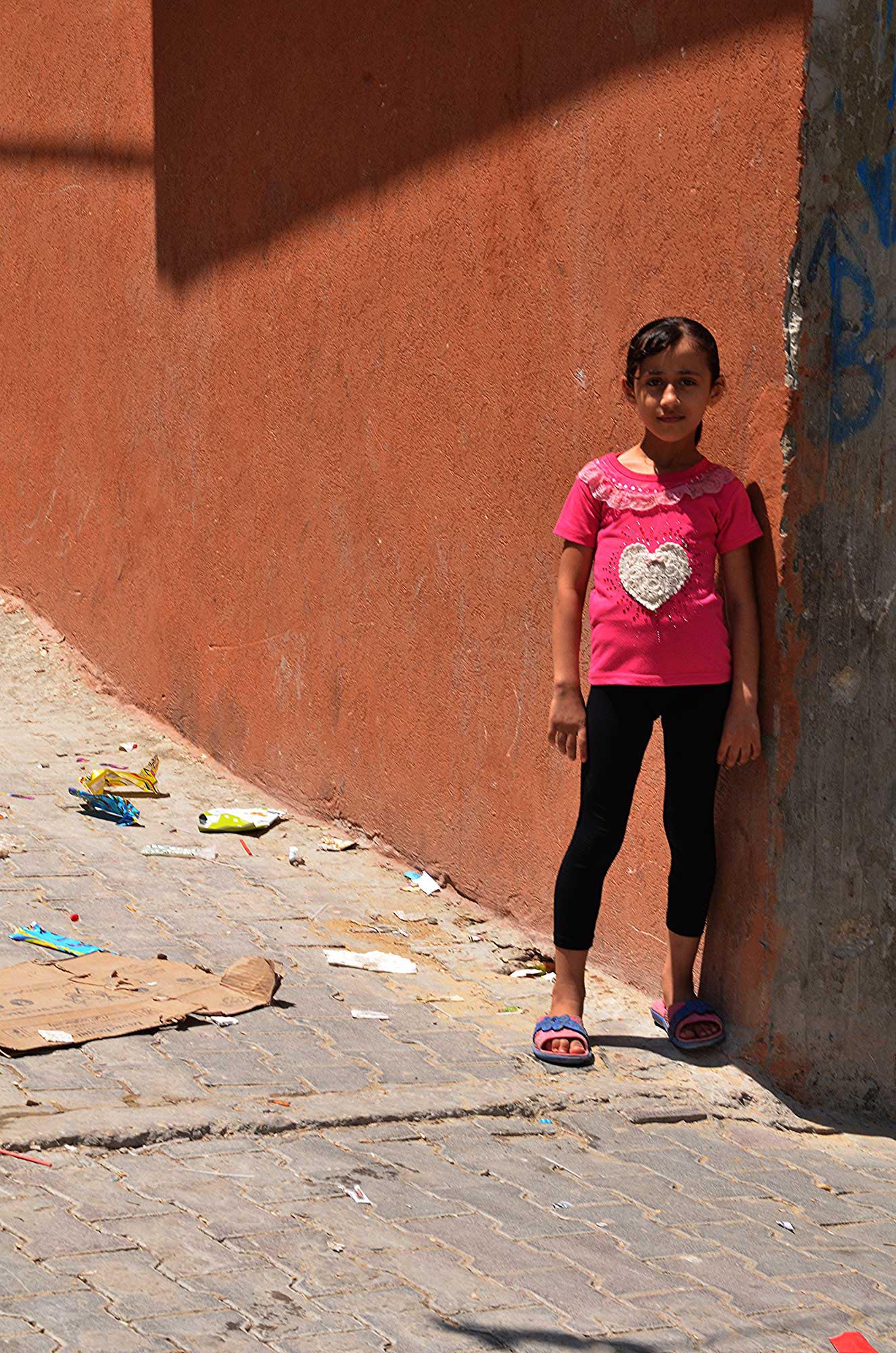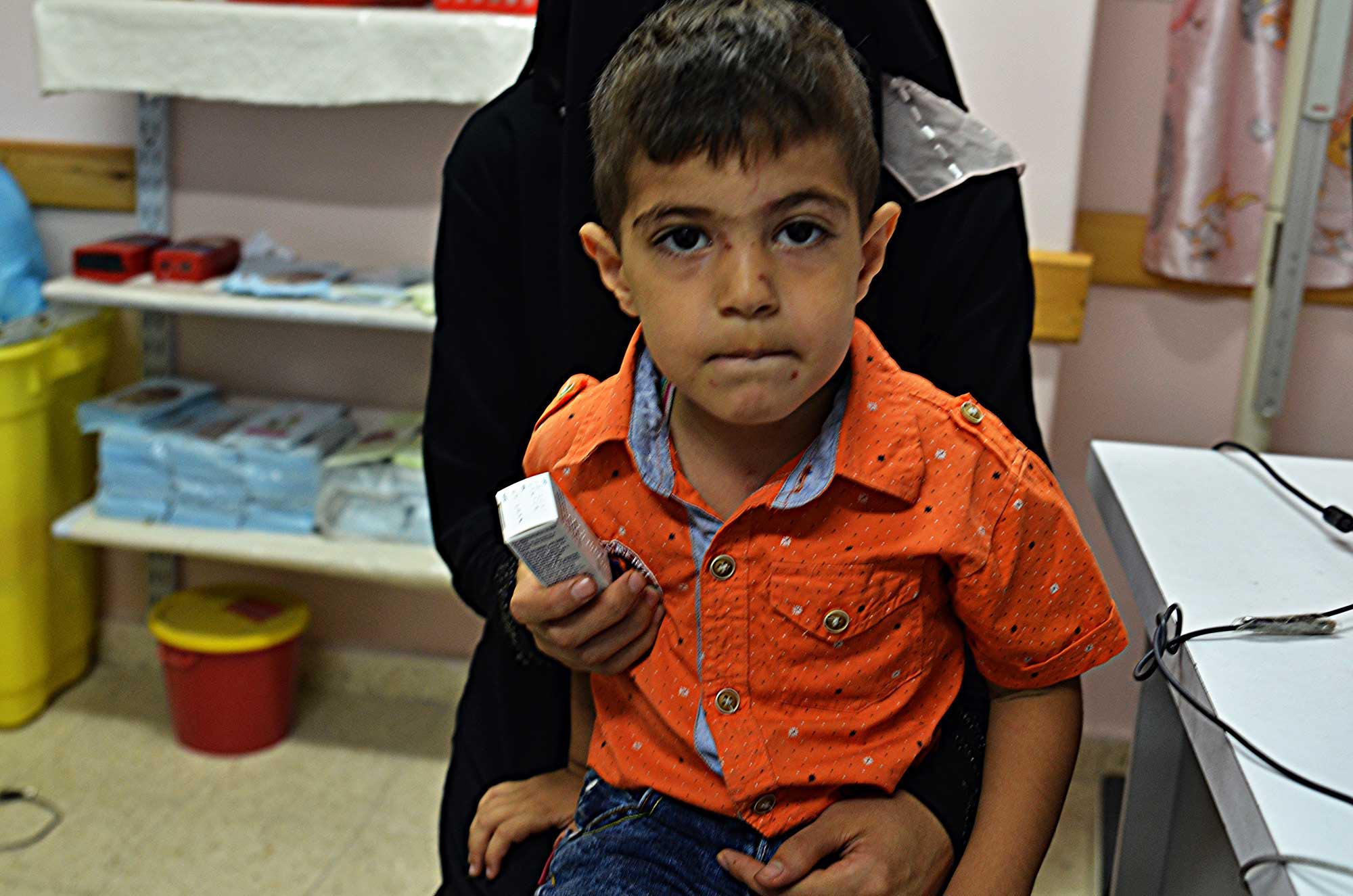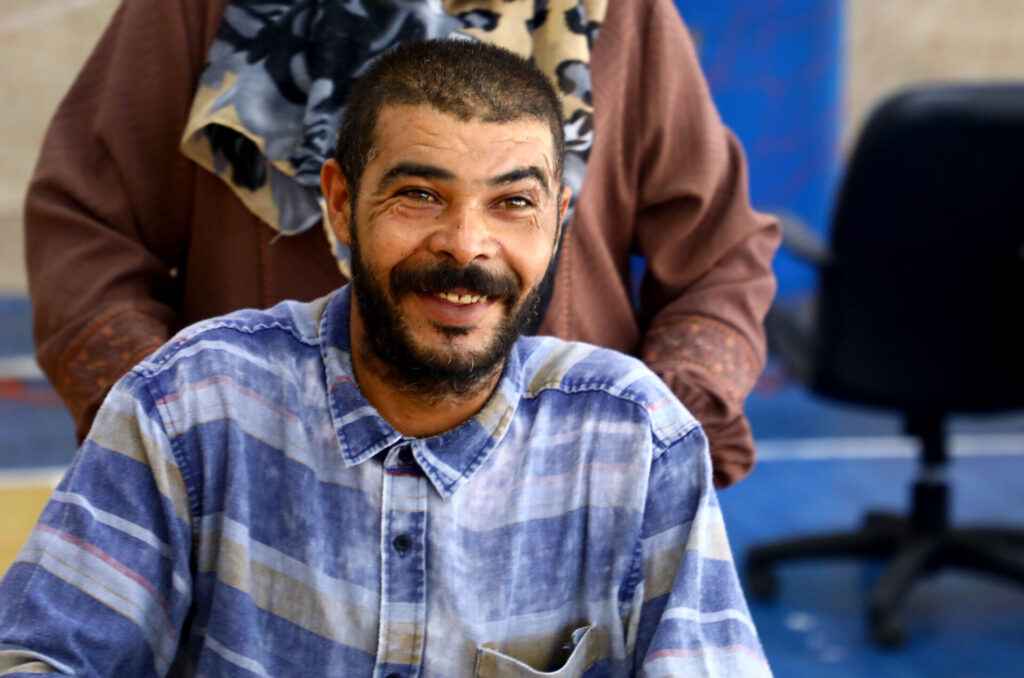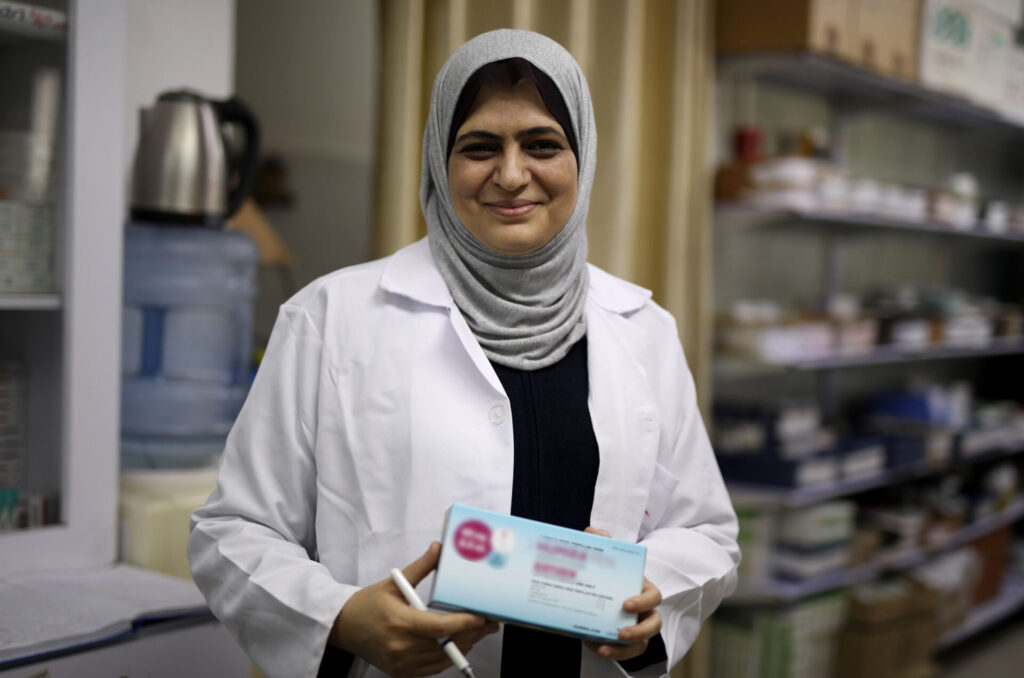Aug, 2016
When the mother of four-year-old Malek discovered dark spots and blemishes on his neck and back, she acted fast.
She took him to Shejaiya’s only clinic, where local mothers get up early to wait in line with their children for routine checkups and treatment.
Malek’s condition was hard to diagnose, and his mother had already tried several medicines that hadn’t worked. Finally, Dr. Rami Tarazi diagnosed him with tinea corporis, or ringworm, a type of fungal skin infection.
“During summertime, there’s a rise in skin problems due to the high temperatures, which trigger excessive sweating,” said the doctor. “And with poor personal hygiene, it causes fungal infections.”
In the Shejaiya neighborhood of Gaza, narrow alleys are filled with trash and filth, and sewage overflows onto main streets. Residents can’t get to the city’s bustling market or its only clinic without passing through these heavily polluted areas.
Like other children, Malek plays outside, but the scarcity of water means that he can’t bathe frequently. Dr. Tarazi explains, “His father is jobless and access to hygiene items is a luxury for poor families living in this neighborhood.”


“Lack of personal hygiene, frequent shortages of water and a huge shortage of medicine have triggered various skin ailments in Shejaiya,” said Dr. Tarazi. These problems afflict Shejaiya particularly because the city still has not healed from the war in 2014.
Thankfully, Anera was able to provide some relief for Shejaiya patients like Malek. A recent medical donation contained just the medication Malek needed. The doctor prescribed Terbinafine cream and, after two weeks of treatment, Malek recovered.
In-kind Medicines Cure Variety of Ailments in Shejaiya
Dr. Tarazi says he typically sees around 70 cases of skin disorders each week. Among those cases was 14-year-old Mahdi, who had a painful bacterial infection. “He was in contact with animals like cats and birds and as a result of lack of hygiene, he contracted the disease,” said the doctor. Mahdi was prescribed the an antibiotic to ease his pain and cure the condition.




“Lack of personal hygiene, frequent shortages of water and a huge shortage of medicine have triggered various skin ailments in Shejaiya,” said Dr. Tarazi.
These medicines were part of an International Health Partners donation delivered by Anera as part of the in-kind medical relief program. The shipment contained 30 other items, such as painkillers, antibiotics and oral anti-fungal gel. Anera delivered the medicine to 18 clinics and hospitals in Gaza.
The administrative costs for this shipment were funded by the Zakat Foundation of America.


